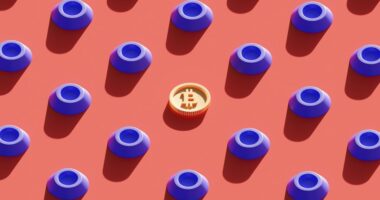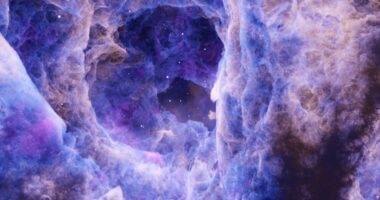Non-fungible tokens (NFTs) are unique digital assets that represent ownership or proof of authenticity of specific items or content, such as artwork, videos, music, or tweets. Unlike interchangeable cryptocurrencies, NFTs are one-of-a-kind and cannot be exchanged on a like-for-like basis. This uniqueness contributes to their value in the digital space.
NFTs utilize blockchain technology, a decentralized and distributed digital ledger that records transactions across multiple computers. This ensures the authenticity and immutability of each NFT. When an NFT is purchased, ownership and transaction details are recorded on the blockchain, providing a transparent and secure method of ownership verification.
NFTs can be bought, sold, and traded on various online marketplaces, with ownership easily transferable between individuals. The value of an NFT is influenced by factors such as scarcity, demand, and the creator’s reputation. These factors contribute to NFTs being considered a unique investment opportunity in the digital realm.
In essence, NFTs are digital assets representing ownership or authenticity of specific content, built on blockchain technology to ensure security and uniqueness. Their value is determined by market factors, making them a notable investment option in the digital space.
Key Takeaways
- NFTs are unique digital assets that represent ownership of a specific item or piece of content on the blockchain.
- When choosing a marketplace for buying and selling NFTs, consider factors such as fees, user interface, and the platform’s reputation within the NFT community.
- Creating and minting your own NFTs involves selecting the right platform, uploading your digital content, setting parameters for your NFT, and paying the associated gas fees.
- Navigating the legal and copyright considerations of NFTs requires understanding intellectual property rights, licensing agreements, and potential disputes over ownership.
- Staying informed about the latest NFT news and trends involves following key influencers, joining NFT communities, and staying updated on new projects and developments in the space.
Choosing the Right Marketplace for Buying and Selling NFTs
Popular NFT Marketplaces
Some popular NFT marketplaces include OpenSea, Rarible, Foundation, and NBA Top Shot, each offering a unique selection of digital assets and a user-friendly platform for trading. OpenSea is one of the largest and most well-known NFT marketplaces, offering a wide range of digital assets including art, domain names, virtual worlds, and more.
Key Features to Consider
When choosing a marketplace for buying and selling NFTs, it’s crucial to consider the fees associated with each platform, as well as the security measures in place to protect users’ digital assets. Additionally, the user interface and overall experience of the marketplace should be taken into account to ensure a seamless and enjoyable trading experience.
Choosing the Right Marketplace
By carefully considering these factors, you can choose the right marketplace for your NFT trading needs. Whether you’re a seasoned collector or a new entrant in the NFT space, selecting the right marketplace can make all the difference in your trading experience.
Creating and Minting Your Own NFTs: A Step-by-Step Guide

Creating and minting your own NFTs can be an exciting way to showcase your creativity and potentially generate income in the digital space. The process of minting an NFT involves uploading your digital content to a blockchain platform and creating a unique token that represents ownership or proof of authenticity. To get started, you’ll need to choose a blockchain platform that supports NFT creation, such as Ethereum or Binance Smart Chain.
Once you’ve chosen a blockchain platform, you can use an NFT marketplace like Rarible to mint your digital content into an NFT. The minting process typically involves uploading your file, adding details such as title, description, and tags, and setting any additional parameters such as royalties for future sales. After completing these steps, your digital content will be transformed into a unique NFT that can be bought, sold, and traded on the marketplace.
It’s important to note that creating and minting your own NFTs may involve fees for using the blockchain platform and marketplace services. Additionally, you should carefully consider copyright and ownership rights when minting NFTs to ensure that you have the legal authority to tokenize and sell the digital content. By following this step-by-step guide, you can create and mint your own NFTs to showcase your creativity and potentially generate income in the digital space.
Navigating the Legal and Copyright Considerations of NFTs
As the popularity of NFTs continues to grow, it’s important to navigate the legal and copyright considerations associated with these digital assets. When creating or purchasing an NFT, it’s crucial to consider copyright ownership and licensing rights to ensure that you have the legal authority to tokenize and sell the digital content. Additionally, creators should be aware of potential legal implications when minting NFTs based on existing copyrighted works or intellectual property.
One key consideration when navigating the legal aspects of NFTs is understanding the concept of “smart contracts,” which are self-executing contracts with the terms of the agreement directly written into code. Smart contracts are often used in NFT transactions to automate the transfer of ownership and royalties between parties. It’s important for creators and buyers to understand the terms of these smart contracts and ensure that they comply with copyright laws and licensing agreements.
Another legal consideration when dealing with NFTs is the potential for disputes over ownership or authenticity of digital content. Blockchain technology provides a transparent and secure way to verify ownership of NFTs, but disputes may still arise regarding copyright infringement or unauthorized use of intellectual property. To navigate these legal considerations, it’s important to seek legal advice from professionals with expertise in intellectual property law and blockchain technology.
In summary, navigating the legal and copyright considerations of NFTs involves understanding copyright ownership and licensing rights, as well as potential disputes over ownership or authenticity of digital content. Creators and buyers should be aware of smart contracts used in NFT transactions and seek legal advice to ensure compliance with copyright laws and licensing agreements.
Staying Informed: Keeping Up with the Latest NFT News and Trends
Staying informed about the latest news and trends in the world of NFTs is crucial for anyone involved in this rapidly evolving space. With new developments, partnerships, and trends emerging regularly, it’s important to stay up-to-date with the latest information to make informed decisions about buying, selling, or creating NFTs. There are several ways to stay informed about NFT news and trends, including following industry publications, joining online communities, and attending virtual events and conferences.
Industry publications such as CoinDesk, Decrypt, and The Block provide in-depth coverage of NFT news, trends, and analysis from experts in the field. By following these publications, you can stay informed about new developments in the NFT space, including partnerships between artists and platforms, new marketplace features, and emerging trends in digital collectibles. Additionally, joining online communities such as Discord servers or Reddit forums dedicated to NFTs can provide valuable insights from other enthusiasts and industry professionals.
Attending virtual events and conferences focused on blockchain technology and digital collectibles is another great way to stay informed about the latest news and trends in the world of NFTs. These events often feature panel discussions, keynote presentations, and networking opportunities with industry leaders and innovators. By participating in these events, you can gain valuable knowledge about emerging trends in the NFT space and connect with like-minded individuals who share your passion for digital collectibles.
In conclusion, staying informed about the latest news and trends in the world of NFTs is crucial for making informed decisions about buying, selling, or creating these digital assets. By following industry publications, joining online communities, and attending virtual events and conferences, you can stay up-to-date with new developments in the NFT space and connect with other enthusiasts and industry professionals.
Managing Your NFT Portfolio: Tips for Investing and Collecting

Diversification: A Key to Managing Risk and Maximizing Returns
Diversifying your NFT collection is crucial for managing risk while maximizing potential returns on your investment. By acquiring a variety of digital assets across different categories, such as art, music, virtual real estate, or gaming items, you can spread out your risk while tapping into diverse opportunities for growth. This approach also allows you to explore different creative expressions within the world of non-fungible tokens.
Conducting Thorough Research: A Prerequisite for Informed Decision-Making
Before making any purchases or investments in NFTs, it’s essential to conduct thorough research about the creators, platforms, and market trends associated with the digital assets you’re interested in acquiring. This research involves studying the reputation of artists or creators within the NFT space, understanding the features and functionality of different marketplaces, and staying informed about emerging trends in digital collectibles.
Staying Informed: A Critical Component of NFT Portfolio Management
Staying informed about market trends and developments is critical to managing your NFT portfolio effectively. By staying up-to-date on the latest news and trends, you can make informed decisions about acquiring valuable digital assets for your portfolio and capitalize on emerging opportunities for growth.
In summary, managing your NFT portfolio involves diversifying your collection, conducting thorough research, and staying informed about market trends. By following these strategies, you can curate a valuable collection of digital assets while exploring diverse opportunities for growth within the world of non-fungible tokens.
Engaging with the NFT Community: Building Connections and Networking in the Space
Engaging with the NFT community is an important aspect of building connections and networking within this rapidly growing space. Whether you’re an artist looking to showcase your work or an investor seeking valuable digital collectibles, connecting with other enthusiasts and industry professionals can provide valuable insights and opportunities for collaboration. There are several ways to engage with the NFT community, including participating in online forums, attending virtual events, and collaborating on creative projects.
Participating in online forums dedicated to NFTs can provide valuable insights from other enthusiasts and industry professionals while also fostering connections within the community. Platforms such as Discord servers or Reddit forums focused on non-fungible tokens offer opportunities to engage in discussions about new developments in the space, share creative work with others, and seek advice from experienced members of the community. By actively participating in these online forums, you can build connections with like-minded individuals who share your passion for digital collectibles.
Attending virtual events focused on blockchain technology and digital collectibles is another great way to engage with the NFT community while also networking with industry leaders and innovators. These events often feature panel discussions, keynote presentations, and networking opportunities with other enthusiasts who share your interest in non-fungible tokens. By participating in these events, you can gain valuable knowledge about emerging trends in the NFT space while also connecting with potential collaborators for creative projects.
In conclusion, engaging with the NFT community is crucial for building connections and networking within this rapidly growing space. By participating in online forums dedicated to non-fungible tokens and attending virtual events focused on blockchain technology and digital collectibles, you can connect with other enthusiasts while also seeking opportunities for collaboration within the world of NFTs.
FAQs
What is an NFT?
An NFT, or non-fungible token, is a digital asset that represents ownership or proof of authenticity of a unique item or piece of content, such as artwork, music, videos, or collectibles, using blockchain technology.
How do I create an NFT?
To create an NFT, you will need to choose a blockchain platform that supports NFTs, such as Ethereum or Binance Smart Chain, and use a marketplace or platform that allows you to mint and list your NFT for sale.
What can be turned into an NFT?
Almost any digital content can be turned into an NFT, including artwork, music, videos, virtual real estate, virtual goods, and even tweets or memes.
How do I buy an NFT?
To buy an NFT, you will need to have a digital wallet that supports the blockchain platform the NFT is created on, such as Ethereum for Ethereum-based NFTs. You can then purchase NFTs from various marketplaces or directly from the creators.
What are the benefits of owning an NFT?
Owning an NFT provides proof of ownership and authenticity of a digital asset, and it can also potentially increase in value over time, similar to physical collectibles or artwork.
What are some popular NFT marketplaces?
Some popular NFT marketplaces include OpenSea, Rarible, Foundation, and NBA Top Shot for sports-related NFTs. Each marketplace may have its own unique features and focus.





